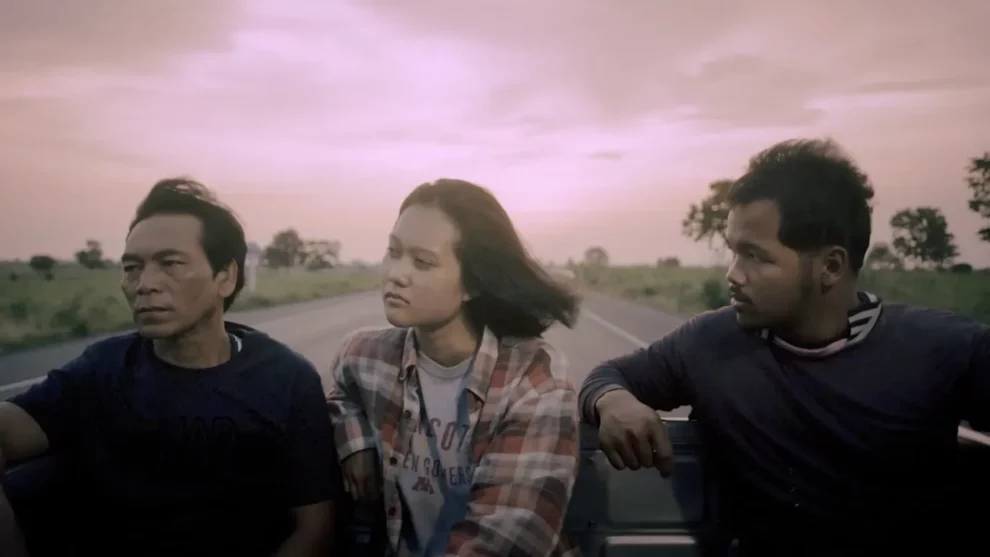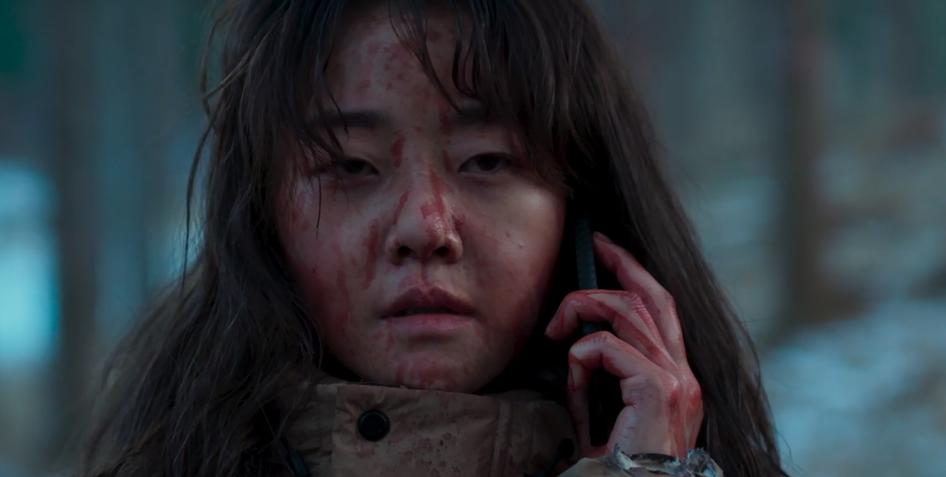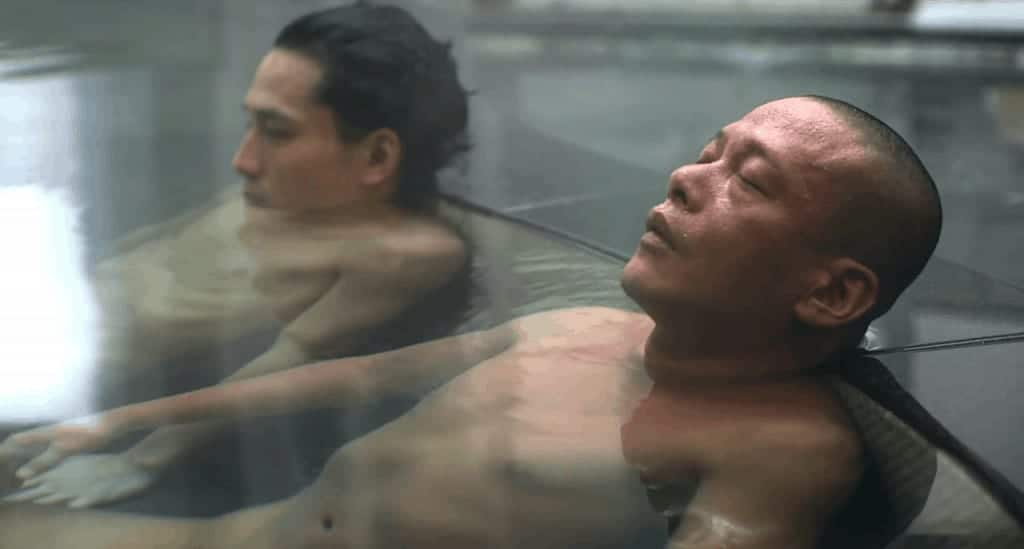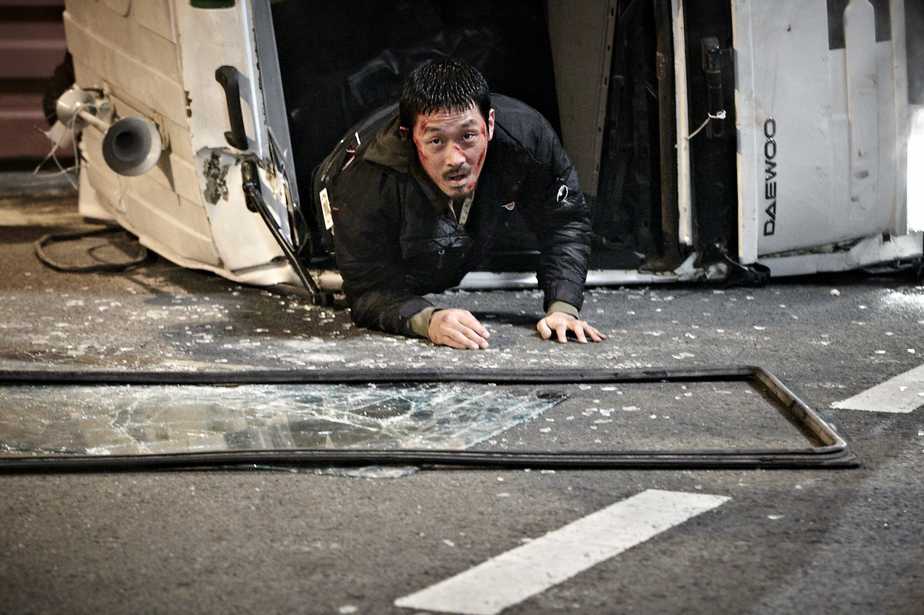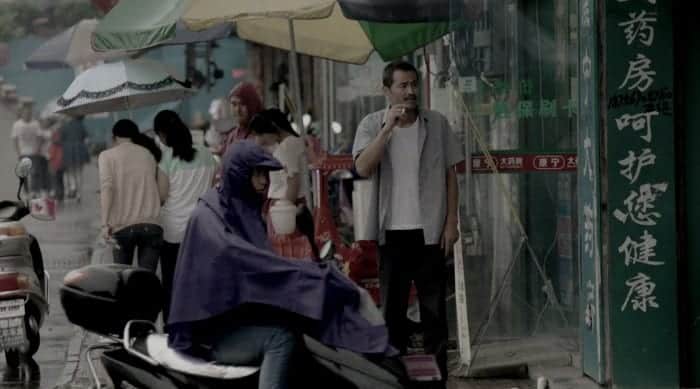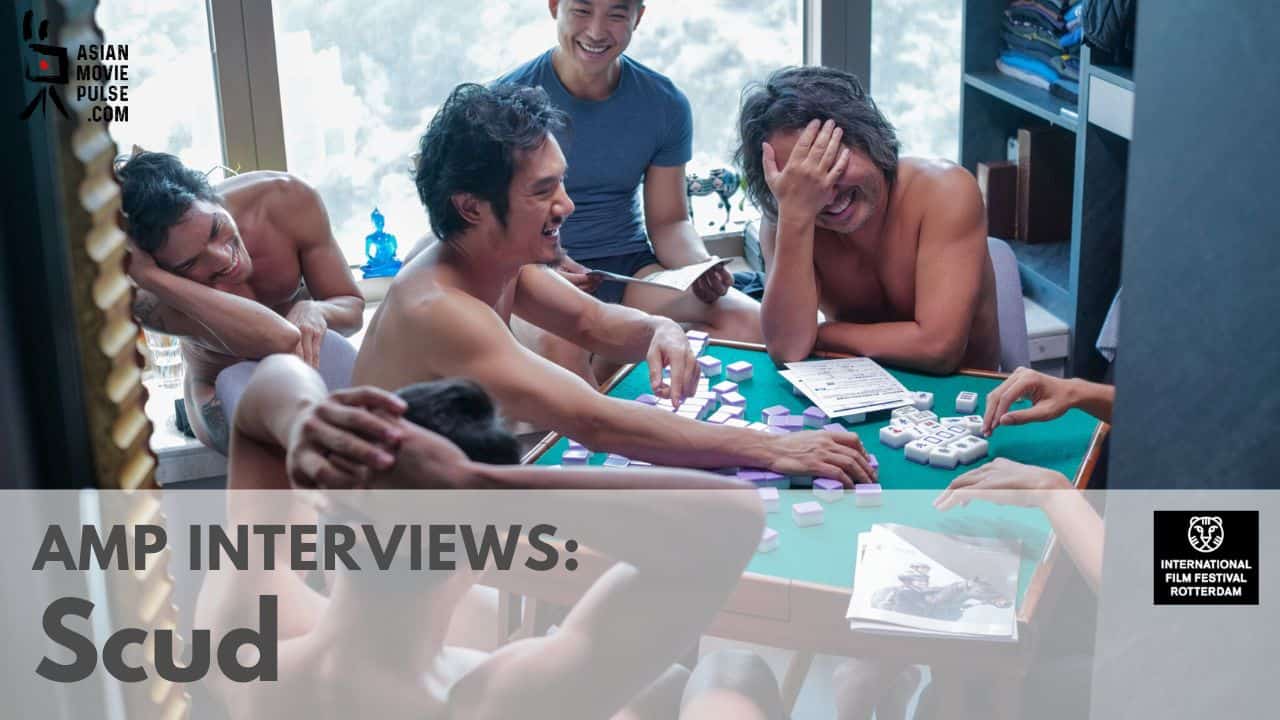Possathorn Watcharapanit's contemplative slow-burner “Rivulet of Universe” opens with verses by the Vietnamese Thiền Buddhist monk Thich Nhat Hanh who wrote about himself not been restricted whether by the present or future. For a film that doesn't stay in one time and space, but wanders from the past to the now and back again in form of dreams, poetic thoughts, tales and historic facts that overlap, this introduction measures up.
Borrowed Time is screening at International Film Festival Rotterdam

Time travel doesn't happen in a physical sense. It's the information about Thailand's mythology, history and its recent development that people are either telling each other- or being informed about through cultural institutions, that does it. There is a clear influence of Apichatpong Weerasethakul in the loose treatment of time and space, very long takes and long shots, but crucial differences between the two filmmakers is in their approach to the narrative. Watcharapanit has a defined storyline which sometimes is too much about selling his homeland in a tourist package loaded with information about borders, battles and a pantheon of earthly and heavenly deities.
Straight from the poetic introduction, we get transported to a moving train carrying a sleeping Cambodian migrant Jit (Arnan Jongpae), who is on his way to Phimai, a temple town in Thailand, a place of rich history where a group of archeologists works on excavations of 4000-years-old bodies. He is someone who can see things through his sixth sense, which is a gift and a curse at the same time, and for us a sort of, let's call it – spiritual guide through the film.
Once in Phimai, the first place Jit ventures to is an old khmer temple, or rather the remnants of it. In an almost documentarist fashion that will remain very present in the movie, Watcharapanit leads us along its barren walls and straight into the National Museum building, where the research team is having vivid discussions about the important find over home-cooked meals that soon enough win on importance over archeology. The river snail soup cooked by one of them sparks a conversation about the differences in Thai cuisine across the country, the seasonings and main ingredients that make them so special.
Dissolves are used to jump from one segment of the story to the other, introducing new characters and places. Technically accomplished, they are an artistic break from the constant flow of concentration-demanding information. One of them will bring Ping and Tat into the picture, a young couple who befriends Jit and starts taking him everywhere. Where this bond came from and why is not clear, it is just the way it is.
A shift in dynamics happens in the middle of the film, when three of them take a trip to Khong Jiam, a town on the Mekong river where Pim's parents lived. They were the bearers of another time and beliefs, as former communists during the Cold War. Yet again, the viewer is in a museum, looking into another kind of “archeology” in an exhibition dedicated to the communist past. Jit can hear the voices and connect past with the present again.
“Rivulet of Universe” is an ambitious debut feature for Passathorn Watcharapanit who is also behind the script. The film continues where his short “Real Rhythm of Rivulet” (2023) stopped, and expands on the exploration of time and timelessness. One of its most interesting aspects is the role of sound design. Wild and loud, it forces itself between people in conversations and makes the reality sound like a dream.


